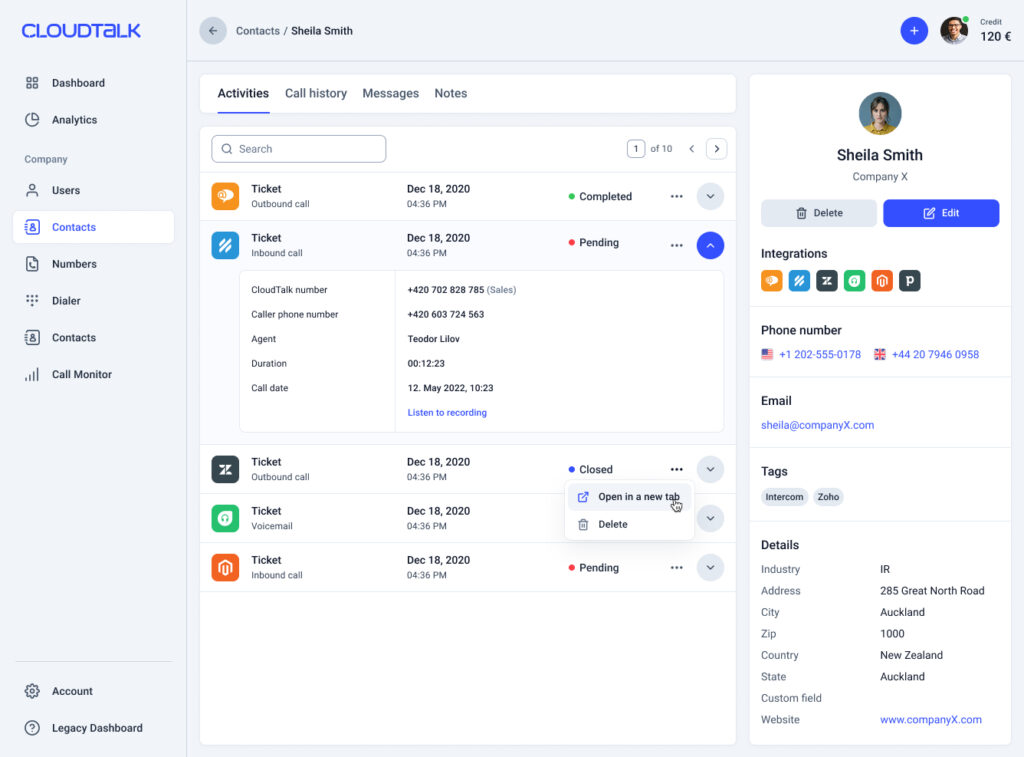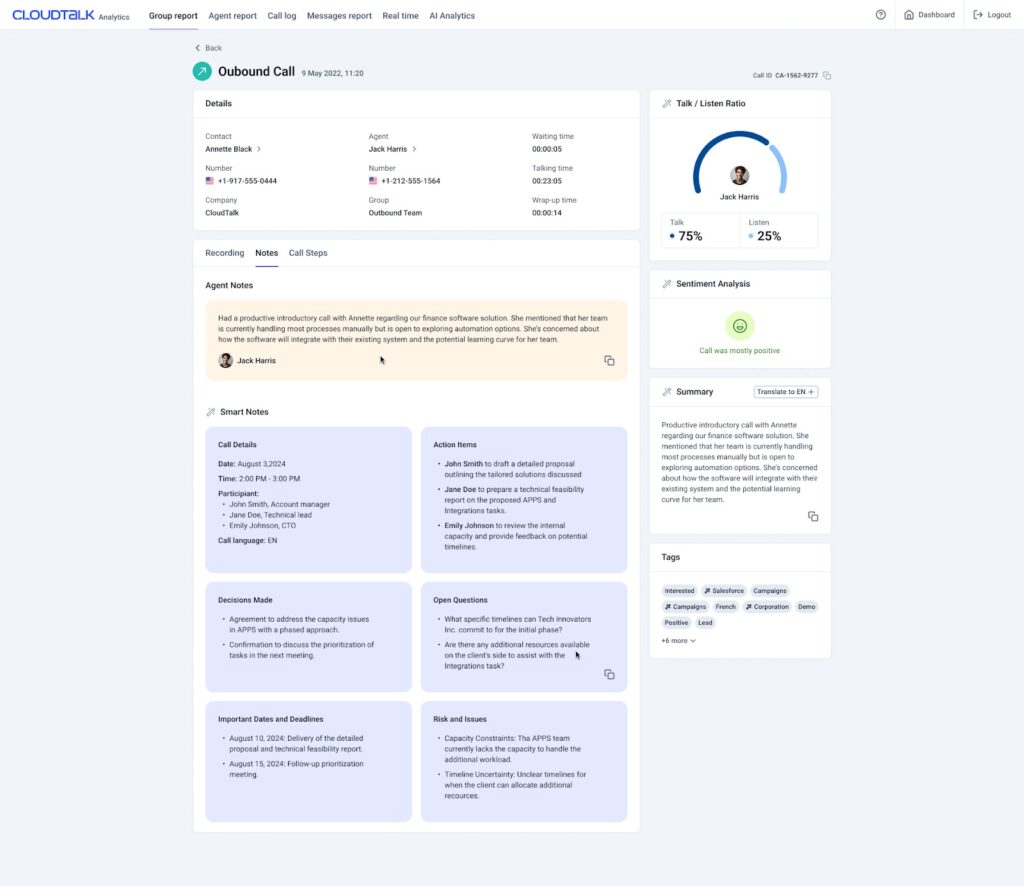
Still using “press 1 for support”? Phone menus haven’t changed in decades, but your customers have.
Today’s customers expect AI that actually listens, understands, and solves their problems in seconds, not minutes.
This guide shows exactly how AI IVR transforms frustrated callers into satisfied customers. And why waiting another month could cost you more than you think.
Key Takeaways
- AI IVR cuts call resolution time by instantly understanding customer issues instead of making customers navigate 4+ menu levels.
- Companies see fewer agent transfers and handle more calls with the same staff by automating queries that follow predictable patterns.
- AI IVR handles call volume increases without adding headcount. Perfect for growing businesses.
Give your customers support that speaks their language.
What Is AI-Powered IVR?
AI IVR (Artificial Intelligence Interactive Voice Response) is an automated voice system powered by artificial intelligence. It listens to callers using voice recognition, understands their intent through natural language processing (NLP), and responds or routes calls intelligently in real time.
Unlike traditional IVR systems that rely on rigid menu structures like “press 1 for billing,” AI IVR enables callers to speak naturally, for example, saying “I need help with my invoice,” and routes or serves them based on that request.
Key Differences Between Traditional IVR and AI IVR:
Feature
Traditional IVR
AI IVR
Real-Life Example
Input Method
Numeric input only (press 1, 2…)
Voice input with natural language
Customer says, “I want to cancel my subscription,” instead of pressing 1→3→2→5
Navigation
Fixed menu trees
Dynamic, contextual understanding
System recognizes “billing issue” and routes to accounts, not generic support
User Experience
Slow and frustrating
Fast, intuitive, and flexible
30-second resolution vs. 3-minute menu maze
Personalization
No personalization
CRM-integrated personalization
“Hi John, I see you’re calling about your recent order #1234”
With AI IVR, businesses can deliver a smarter support experience that reduces call friction, boosts satisfaction, and scales effortlessly.
Transform your customer experience in under 14 days with AI IVR
8 Key Benefits of AI IVR Systems
AI IVR is more than just a few improvements, it delivers significant gains for support leaders looking to reduce wait times and for small business owners who want 24/7 availability.
See the main benefits for your business:
1. Shorten Call Handling Time
Remember the last time you called customer service and actually got help quickly? That’s what AI IVR delivers every single time.
AI IVR listens to natural speech and instantly understands intent. A customer saying “My card was charged twice” gets routed directly to billing—no detours through sales or technical support.
The result is that call resolution happens 30%1 faster. This means agents handle the right calls from the start, and customers hang up satisfied instead of frustrated.
It’s the difference between a 30-second solution and a 10-minute runaround.
2. 24/7 Self-Service for Routine Tasks
With AI IVR, when someone calls asking “What’s my account balance?” or “When does my subscription renew?”, the system answers immediately—no transfers, no hold music, no frustration.
The impact is massive: 55% of call centers report that AI has enhanced their ability to offer 24/7 customer support1, turning every hour into business hours.
Your customers get help when they need it, not when it’s convenient for your schedule.
3. Improve First Call Resolution
When Sarah says “I was double-charged for my premium plan,” the system immediately understands she needs billing expertise, not general support.
It routes her directly to a billing specialist who already sees her account history, the duplicate charge, and her premium plan details. One call, one agent, one resolution. No repeating her story four times or explaining why she’s angry.
This isn’t just better customer service—it’s better business. First call resolution jumps 20%1 because agents get calls they’re actually equipped to handle, with full context from the start.
4. Turn Every Call Into a VIP Experience
“Hi Marcus, I see you’re calling about your web hosting plan that expires next week. Would you like to renew or discuss our new cloud options?”
That’s what Marcus hears when he calls support. The AI already knows who he is, what he purchased, and what he likely needs. It’s like having a personal assistant who remembers everything.
The business impact is immediate: customers feel valued instead of anonymous, calls resolve faster, and satisfaction scores jump because every interaction feels personal and relevant.
5. Smarter Call Routing
AI IVR understands what callers need through natural language. It uses smart rules to efficiently route calls, unlike traditional systems with rigid menus. Smart IVR offers dynamic handling based on caller intent, providing personalized and effective interactions.
No menu maze, no transfers, no repeating the same story to three different people. In an IVR call center, such intelligent routing ensures fewer escalations and more resolved calls without agent intervention.
With this system, you’ll see much faster call resolution times, fewer frustrated customers, and a big growth in satisfaction. Callers get connected to the right help quickly.

6. Lower Operational Costs
AI IVR cuts down on calls to agents, which eases staffing pressure and keeps costs controlled without failing to fulfill expectations on service quality. Unlike old-school IVR, it’s way more automated and adaptable.
That means big savings and a boost in efficiency by handling basic questions and problems on its own. Since fewer people need to talk to an agent, resources get used better, lowering operational costs but still keeping customers happy. Businesses can then grow more easily and maintain top-notch service standards.
7. Scale Customer Support
Whether you’re handling 10 or 10,000 calls a day, AI IVR scales effortlessly to meet demand, making it ideal for growing businesses that need reliable and consistent customer service.
Unlike traditional IVR systems that often become bottlenecks under pressure, AI IVR adapts in real-time, ensuring that service quality remains high even as volume spikes. This makes it a future-proof solution for organizations expecting rapid growth.
8. Enhance Reporting and Analytics
AI IVR reveals the story behind every call. Tuesday’s data shows 47% of callers asked about “billing issues,” but 23% hung up after being transferred twice. Wednesday reveals a spike in “password reset” requests right after your system update.
Traditional systems leave you guessing. But AI IVR gives you answers.
AI IVR tools provide deep visibility into your call operations by analyzing trends, common customer intents, and where calls tend to drop off. These insights help you fine-tune call flows and proactively address service issues.

How AI IVR Works
Think of AI IVR as the concierge at a five-star hotel. Rather than letting guests aimlessly search for help, this concierge immediately understands their need and urgency, then personally walks them to the best resource. AI IVR does the same for your customers over the phone, providing VIP treatment with zero hold music.
AI IVR systems follow a smart step-by-step process to make every call smoother and faster:
- Speech recognition (STT) converts what the caller says into text.
- Natural language processing (NLP) identifies the caller’s intent.
- Real-time decision logic determines the best next action based on the input.
- The system then routes the call, answers the query, or gathers key details—all before a live agent is involved.
Feel all the benefits. See AI IVR in action.
Key Features of AI IVR Systems
A modern AI IVR system is more than just a talking menu—it’s a full-service automation assistant for your phone support. These are the core features that make AI IVR powerful, flexible, and easy to use:
- Natural Language Processing (NLP): This is what allows your IVR to understand spoken language, not just predefined phrases. Callers can speak naturally, and NLP interprets intent to guide the conversation accurately.
- Smart Call Routing: When a caller says “My payment was declined, but I was still charged,” AI instantly identifies this as a billing dispute requiring both payment processing and refund expertise.
- Visual Call Flow Designer: Design call flows with a simple drag-and-drop interface — no coding needed. With a Call Flow Designer, even non-technical users can build advanced logic.
- Real-Time Personalization: Thanks to CRM integration, AI IVR can access caller history, past issues, and preferences, making each call feel more relevant and responsive.
- Conversation Intelligence: Record, transcribe, and analyze every call. Use AI to detect trends, flag issues, and coach your team.
- Multi-Language Recognition: Your IVR can serve a global audience by recognizing and responding in different languages.
- Integration with Your Favorite Tools: Connect with CRMs, helpdesks, analytics, and automation platforms.
Real-Life Use Cases for AI IVR
E-commerce Customer Support
A growing online store receives thousands of calls daily about order tracking, returns, and product information. AI IVR handles these inquiries automatically using voice recognition and integrates with the store’s CRM to give personalized responses like “Your order #1234 is out for delivery.” This frees up agents to handle complex escalations.
Healthcare Appointment Scheduling
A healthcare clinic can use AI IVR to let patients book, reschedule, or cancel appointments through natural voice commands. The system checks availability in real-time and sends confirmations automatically, reducing no-shows and minimizing admin workload.
Hotel Booking and Concierge Service
A hotel chain can use AI IVR as a 24/7 concierge, answering guest queries like “What time is check-in?” or “Can I get a late checkout?” It recognizes returning customers, accesses booking info, and routes high-value requests to live agents instantly.
B2B Sales Qualification
A SaaS company can use AI IVR to pre-qualify inbound leads by asking key questions like company size, budget, or needs before routing to the right sales rep. This streamlines qualification and ensures reps spend time with the best-fit leads.
Telecom or Utility Providers
Utility companies can use AI IVR to automate outage updates, bill payments, and service setup. Customers can say things like “I want to pay my bill” or “Is there an outage in my area?” and get instant, accurate answers.
You’re ready to choose the right AI IVR system.
Plan Type
Estimated Cost (per user/month)
What You Get
Basic
$25–$30
Essential dialing features, CRM integrations
Professional
$35–$50
Analytics, call routing, automation tools
Enterprise
Custom
Advanced features, multi-site support, SLAs
Turn Every Call into a Smart Conversation with CloudTalk
While your competitors cling to decade-old phone menus, forward-thinking businesses are already reaping the rewards of AI-powered customer service.
The question isn’t whether AI IVR will transform customer service, it’s whether you’ll lead the transformation or hustle to catch up.
CloudTalk makes the choice easy. Our AI-powered call center solution delivers everything we’ve discussed in this guide.
Don’t let another month pass with customers trapped in phone menu hell. Your next caller deserves better than “press 1 for sales.” They deserve instant, intelligent, personalized service.
Ready to transform your customer experience?
Join the future of smart conversations with CloudTalk.














